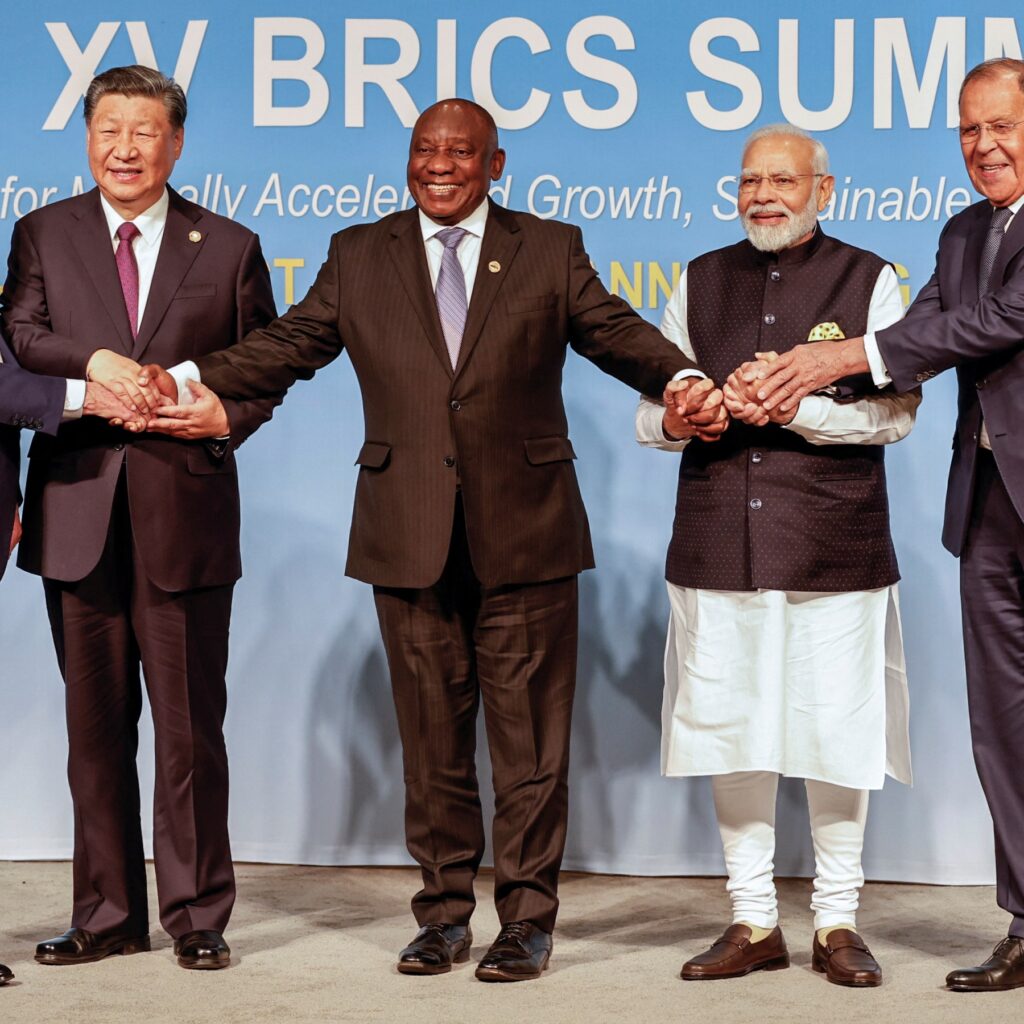What BRICS impact on Africa?
By Sudi Am mba
05.09.2023

The 15th annual BRICS summit took place in South Africa August 2023. This is an international relations conference where heads of government of the five member states attended: Brazil, Russia, India, China, and South Africa.
At the summit, it was announced that from the beginning of next year, Iran, Saudi Arabia, Egypt, Argentina, the UAE and Ethiopia will join BRICS. The BRICS countries had a combined population of 3.24 billion people, over 40 percent of the world population in 2021.
In 2023, The original BRICS members combined GDP were $27.6 trillion and expected to reach $30.8 trillion with the new members included. Currently, BRICS represents a substantial portion of global exports of oil, corn, and wheat.
What BRICS impact on Africa?
For Africa, BRICS presents both opportunities and challenges. The member countries have shown interest in investing and trading with African nations, which can boost economic growth and infrastructure development.
BRICS countries offer African nations expanded trade options and investment opportunities in several ways:
Investment: BRICS nations often invest in infrastructure projects such as roads, railways, energy facilities, and telecommunications networks. These investments can improve connectivity within Africa and promote economic growth.
Technology Transfer: BRICS countries have advanced technology sectors. Through partnerships and collaborations, African nations can access new technologies, knowledge, and expertise, fostering innovation and development.
Financing Options: BRICS countries have established financial institutions like the New Development Bank (NDB) that provide funding for infrastructure and development projects in member and non-member countries alike.
Diverse Markets: The BRICS countries represent a wide range of industries, technologies, and consumer bases. This allows African countries to diversify their export markets and reduce dependence on a single trading partner.
Joint Ventures: African businesses can partner with BRICS counterparts to establish joint ventures, tapping into new markets, sharing resources, and benefiting from cross-border collaborations.
Resource Demand: China and India, as part of BRICS, have a growing demand for natural resources. African countries with abundant resources can benefit from exporting to these nations, creating revenue streams and potentially driving economic development.
Job Creation: Investments and trade with BRICS nations can lead to job creation in sectors like manufacturing, construction, and services, which contributes to reducing unemployment rates.
Note that there are potential challenges with BRICKS in terms of unequal partnerships on trade agreements and investments, resource management, debt concerns, infrastructure quality, increased competition for local industries in African countries which need to prepare on global scale.
Overall, BRICS can provide Africa with increased trade options and investments, but careful consideration, planning, negotiation must be taken into account to maximize the benefits and minimize the risks.